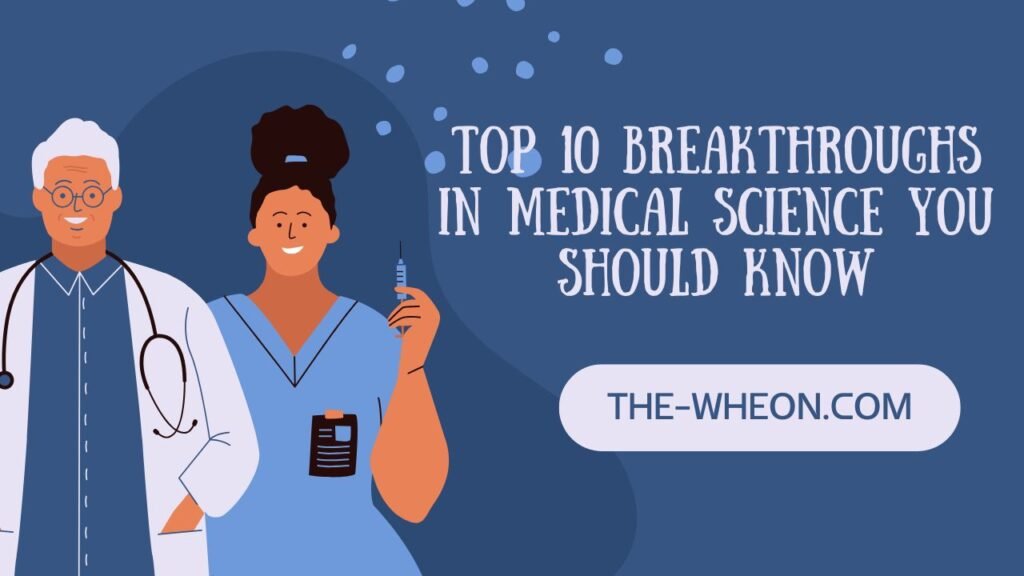Medical science is evolving at lightning speed, and July 2025 has brought some truly groundbreaking innovations. From AI-powered diagnostics to personalized gene therapies, the future of healthcare looks more precise, efficient, and patient-centric than ever. At Wheon.com, we bring you the top 10 medical science breakthroughs that are reshaping the way we prevent, diagnose, and treat diseases.
1. AI Diagnoses Disease in Under 60 Seconds
Researchers at MIT have developed an AI tool that can diagnose over 100 diseases using simple patient data and imaging—within 60 seconds. Early trials have shown 95% accuracy in identifying conditions like pneumonia, skin cancer, and early-stage Alzheimer’s.
2. CRISPR 3.0: Safer and More Accurate Gene Editing
The third generation of CRISPR technology, CRISPR 3.0, has emerged with unprecedented precision and fewer off-target effects. This could revolutionize treatments for genetic disorders such as sickle cell anemia, cystic fibrosis, and Huntington’s disease.
3. Cancer Vaccine Shows Promising Results
A new personalized cancer vaccine, developed through mRNA technology, has shown a 78% success rate in preventing tumor recurrence in melanoma patients. Experts believe it could be adapted for lung, breast, and pancreatic cancers next.
4. Wearable Tech Detects Strokes Before They Happen
A smart wristband that monitors neurological signals has been able to predict strokes up to 2 hours before they occur. With real-time alerts, patients can now get help faster and reduce long-term damage.
5. Artificial Blood Trials Show Human Compatibility
Artificial blood created from lab-grown stem cells has successfully completed its first round of human trials. This development could solve global blood shortages and be a game-changer in emergency medicine.
6. Regenerative Medicine: Growing Organs in Labs
Scientists in Japan have grown functioning mini-livers and kidneys using 3D bioprinting technology. Human trials are expected to begin by the end of 2025, potentially eliminating the need for donor waiting lists.
7. Universal Flu Vaccine Advances to Final Phase
A universal flu vaccine that targets multiple strains with one shot has entered its final testing phase. If approved, it may replace the annual flu shot and provide immunity for several years.
8. Digital Twins for Patient Care
Using data from wearables, genetics, and health records, doctors are now creating “digital twins” of patients to test treatment plans in virtual simulations before real-life application—boosting safety and success rates.
9. Nano-Robots for Targeted Drug Delivery
Tiny nano-robots are now being used in human trials to deliver chemotherapy directly to cancer cells, minimizing damage to healthy tissue. Early feedback shows better outcomes with fewer side effects.
10. Mental Health Breakthrough: Fast-Acting Depression Drug
A new fast-acting antidepressant, derived from plant-based compounds, can lift symptoms within 24 hours—without the addiction risk of traditional meds. It’s currently under review for emergency use approval.
Final Thoughts
The pace of medical innovation in July 2025 is nothing short of historic. These advancements are not just scientific achievements—they are lifesaving, future-shaping milestones. At wheon.com health news, we’re committed to keeping you informed about the breakthroughs that matter most. Whether it’s AI, biotechnology, or mental health, the future of medicine is here—and it’s more hopeful than ever.
